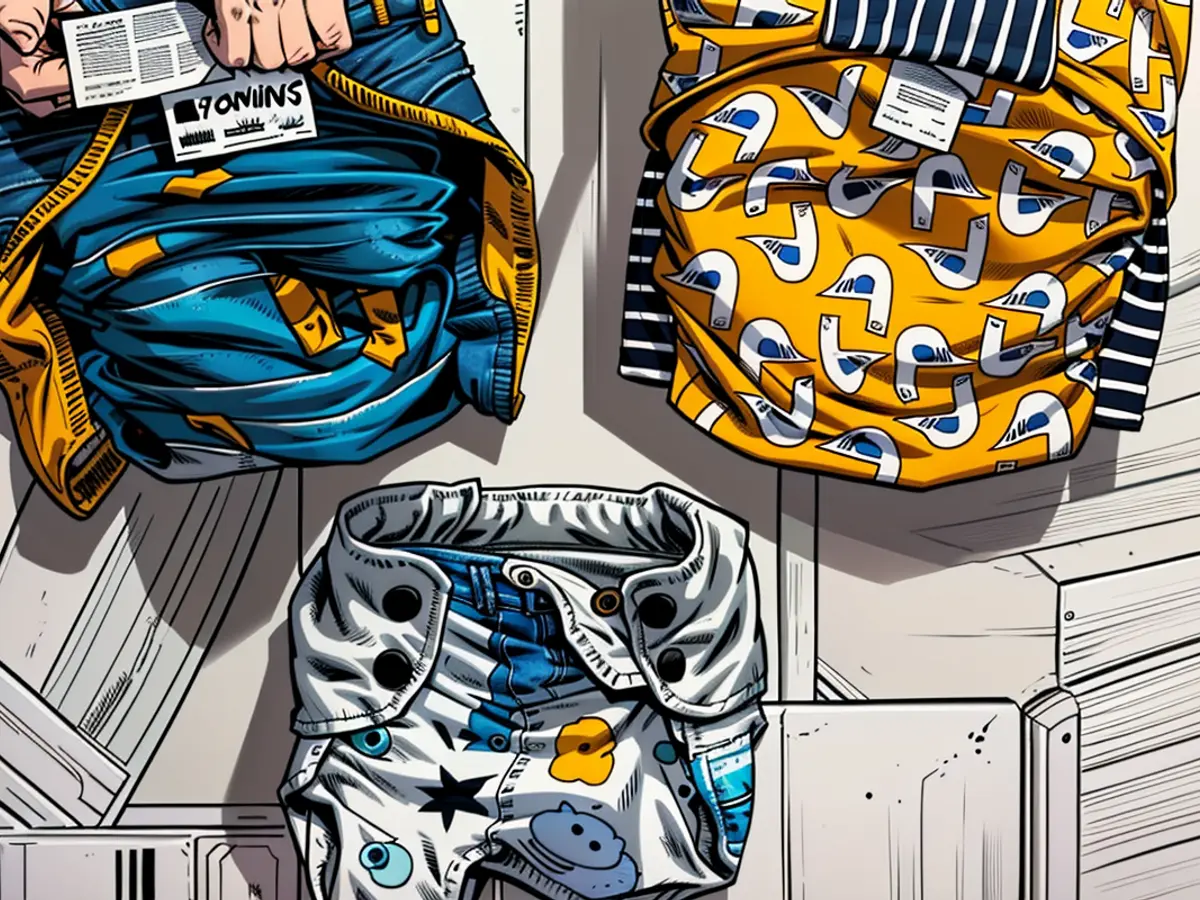- Only select municipalities in North Rhine-Westphalia provide financial aid for reusable diapers.
In North Rhine-Westphalia, many smaller urban areas are giving incentives for utilizing reusable fabric diapers. As revealed by a report from the German Press Agency, only Wuppertal offers a one-time subsidy of 100 euros for buying cloth diapers, as confirmed by the city itself. On the flip side, none of the top ten populous cities in NRW, including Cologne, Düsseldorf, Essen, Duisburg, Dortmund, Münster, Bielefeld, and Bonn, provide such financial aid.
Behind the scene, some cities like Detmold, Kevelaer, Nettetal, and Rheda-Wiedenbrück, along with the localities of Hiddenhausen, Herzebrock-Clarholz, and Wachtendonk, are supporting cloth diaper purchases. The support varies among these areas, and interested parents must apply for it.
Different Rewards
For instance, Detmold offers a one-time subsidy of 13 euros at the start and 8 euros per month. Rheda-Wiedenbrück pays out 75 euros annually until the child turns three, while Herzebrock-Clarholz grants a subsidy of 128 euros. The city of Kevelaer supports families with a one-time subsidy equivalent to 25% of the total expense, not exceeding 100 euros.
Local Subsidies
In Nettetal, families residing within the city are eligible for a yearly subsidy of 70 euros, depending on the available budget. The city explains that the subsidy's purpose is to encourage waste reduction among families with young children, urging them to opt for reusable fabrics instead of disposables. Hiddenhausen, as a token of support, offers a monthly subsidy of 5 euros.
Promotion of Sustainable Practices
The Rhein-Kreis Neuss provides a substantial subsidy of up to 200 euros to promote the purchase of cloth diapers, aiming to reduce waste and foster sustainable practices. Wachtendonk, in the same vein, offers a maximum subsidy of 75 euros for first-time purchases of reusable diaper systems.
According to the German Ministry of Environment, approximately 95% of all infants in Germany are diapered using disposable diapers. Cloth diapers, typically constructed from several materials such as absorbent inner fabric and an outer diaper cover, can be purchased either as multi-piece systems (comprising outer and inner diapers) or as a single piece model.
In some cities like Nettetal, the net of local subsidies extends to families residing within the city, offering a yearly subsidy of 70 euros for promoting the use of reusable fabric diapers. Similarly, Hiddenhausen supports families with a monthly subsidy of 5 euros, contributing to their net cost of using cloth diapers.








